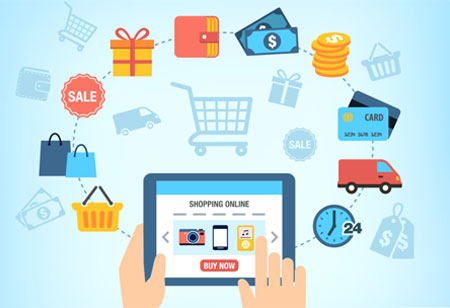THANK YOU FOR SUBSCRIBING
Five Tech Innovations That Are Revamping the E-Commerce Sector
Technology is the backbone of e-commerce and has disrupted this industry as consumers now prefer shopping and making purchases online.

By
Apac CIOOutlook | Monday, December 10, 2018
Stay ahead of the industry with exclusive feature stories on the top companies, expert insights and the latest news delivered straight to your inbox. Subscribe today.
Technology is the backbone of e-commerce and has disrupted this industry as consumers now prefer shopping and making purchases online. With the advancing technologies, brands have to determine how would they market themselves and grow their sales. Moreover, adopting appropriate technology is will assist e-commerce brands to be efficient, minimize their expenses, engage their customers and improve the buyer experience.
Listed below are five technologies that will impact e-commerce the most:
1. Blockchain Technology
The blockchain is a powerful and promising technology that enterprises are looking forward to utilizing. Although e-commerce industry is growing, there are problems associated with it such as supply chain management, payments, data security, satisfied consumers and retailers and therefore the blockchain technology is bringing solutions for all these problems.
In the supply chain management, blockchain helps in visualizing the entire process thereby increasing transparency and assisting the customers to see how their orders are being handled. Also, this technology enhances data security. As blockchain is a decentralized technology, it helps in the reduction of the chances of the data being stolen.
2. Augmented Reality and Virtual Reality
Both these technologies help businesses in influencing its customers to make purchases whether it’s an online store or a brick-and-mortar store. These innovations contribute to getting deeper into customer experience offered by the various e-commerce brands.
Augmented Reality has modified the shopping experience entirely; it helps the customer to be a part of the story that is featuring the product. It helps the customer to infuse the real and virtual elements together in their shopping experience. Using virtual reality, users can explore the virtual showrooms. Moreover, through this, consumers can visualize products before they buy them thereby reducing the chances of post-purchase hassles.
3. Artificial Intelligence and Machine Learning
Machine Learning provides a personalized experience to different segments of customers based on the shopping patterns identified by these intelligent algorithms. Through AI, it is possible to understand what products the consumers are likely to purchase. E-commerce businesses can use this platform to offer personalized recommendations about products and services. Companies that implement AI and ML can boost their sales also enhance efficiency in ordering and inventory management.
The use of Chatbots is also highly recommendable now as it assists buyers to look for the right product, check the availability of the products and even make payments.
4. Multi-channel E-commerce
Multi-channel e-commerce helps brands to promote or sell their products through any medium. It helps in bringing e-commerce to various platforms like social media, online communities, messaging applications, and others as it is easy to pitch the target audience through these channels. Customers won’t go for a product the first time they see it; therefore, it is essential to track the customers and follow them in different locations.
5. Automation Software
Automation in e-commerce platforms can significantly enhance efficiency Automation helps in bookkeeping and accounting, email marketing and social media management. E-commerce platform also uses drones and automation software to simplify the shipping process. Major giants are investing in automation to stay in the competition.





